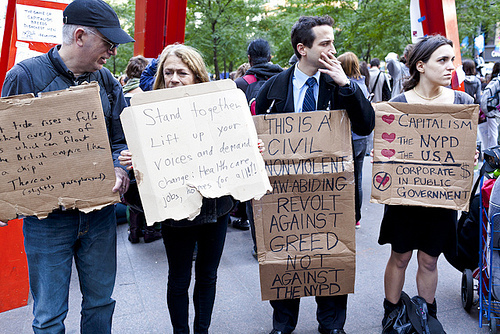On the first day of class last fall, I asked my college students to spend ten minutes writing a brief essay explaining their definition of the American Dream and what they expected the federal government to do to help them achieve it.
The first part of all their essays was pretty standard stuff. They wanted to have a good job, a home, a family, and enough money to enjoy their lives for decades.
It was the second part of the majority of these essays (from a population of 180 students) that left me discouraged and bewildered.
When contemplating the role of Washington, DC, in helping them achieve their life goals, my students—most of whom were educated in the nation’s public schools—wrote that they wanted government to “pay for my tuition,” “provide me with a job,” “give me money for a house,” “make sure I get free health care,” “pay for my retirement,” “raise taxes on rich people so that I can have more money,” and so forth.
One student who thought her American Dream could be best achieved through more government regulations went so far as to say, “We all know that there are many bad side effects when regulations take place, but as human beings, we are not really responsible for our own acts, and so we need government to control those who don’t care about others. It makes sense that our freedom is reduced every day with the new regulations.”
Fewer Contributors
Recently, The Wall Street Journal reported that for the first time in our nation’s history, 51 percent of Americans will not pay income taxes this year. In 1983, just over 29 percent of Americans received some form of government assistance. Today the figure is 44.4 percent.
These figures are noteworthy and arguably linked to my students’ concept of what the role of government should be.
After all, it makes intuitive sense that in a nation where fewer and fewer Americans are net contributors to our prosperity, the children of those who increasingly live off their fellow citizens would develop the perception that part, if not all, of the American Dream involves taking money away from a working, productive American in order to fill the financial gaps in their lives.
Property Confiscation Illustrated
On the second day of class, I asked my students to pull out their purses and wallets. In each class, I approached one student, and with his or her permission, took all of the cash in their wallet.
I then told the students that part of my American Dream is to have a cabin on a lake in northern Minnesota someday so that I can enjoy my retirement in that beautiful part of the country.
My students listened to a mini-lecture on our Founding Fathers’ view of rights, especially as it pertains to the pursuit of happiness.
Many seemed to comprehend, perhaps for the first time, that all of us have every right to pursue access to high-quality health care, a good job, a home, cars, retirement, and whatever else we might want to acquire peacefully, but that no one has an inherent right to use government to forcibly take the private property of another citizen to obtain our desires.
In effect, with every dollar we receive by force to gain our dream, we are diminishing, by one dollar, some other person’s dream.
Abolishing Property Rights
Four months later, on the first day of the spring semester, I handed 137 students an essay question asking whether they would be willing to support a law that banned the right to own property and imposed heavy, progressive income taxes on people to reduce poverty and instill a “greater sense of community.”
Some of my students recognized that much of this question’s wording came directly from The Communist Manifesto, written by Karl Marx and Friedrich Engels in 1848. These students eloquently pointed out the severe and dangerous consequences of abolishing property rights and punishing productive human beings with the tax code.
Yet, 28 percent of my students—college students who are supposedly studying in order to earn more income and acquire property later—wrote they would support, enthusiastically in some cases, eliminating the right to property and far greater taxation for Americans.
If almost three in ten college students support such severe measures to impose equality on all of us, one can only imagine what the rest of the citizenry—many of whom are far less educated—might support.
United States and Rome
I spent most of day two of my classes reading to my students the story of the fall of the Roman Empire. Many were astounded to hear about the source of Rome’s wealth: free trade, modest taxation, and private property rights.
Equally surprising to many was Rome’s progression toward a massive welfare state, rising taxes, onerous regulations, and wildly out-of-control money-creating to pay for imperial expansion of plunder.
I sincerely hope that in the years to come they will acquire a greater understanding of the concepts of free markets, the dangers of the welfare state, and the historical proofs of liberty’s superiority over the tyranny that comes from elected officials’ good intentions.
If not, I hope they cannot find me in northern Minnesota.
Jack Chambless ([email protected]) is a professor at Valencia College and a policy adviser to The Heartland Institute.




